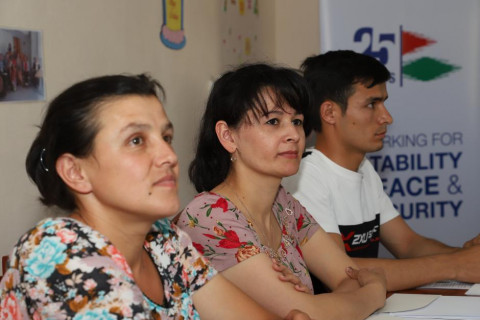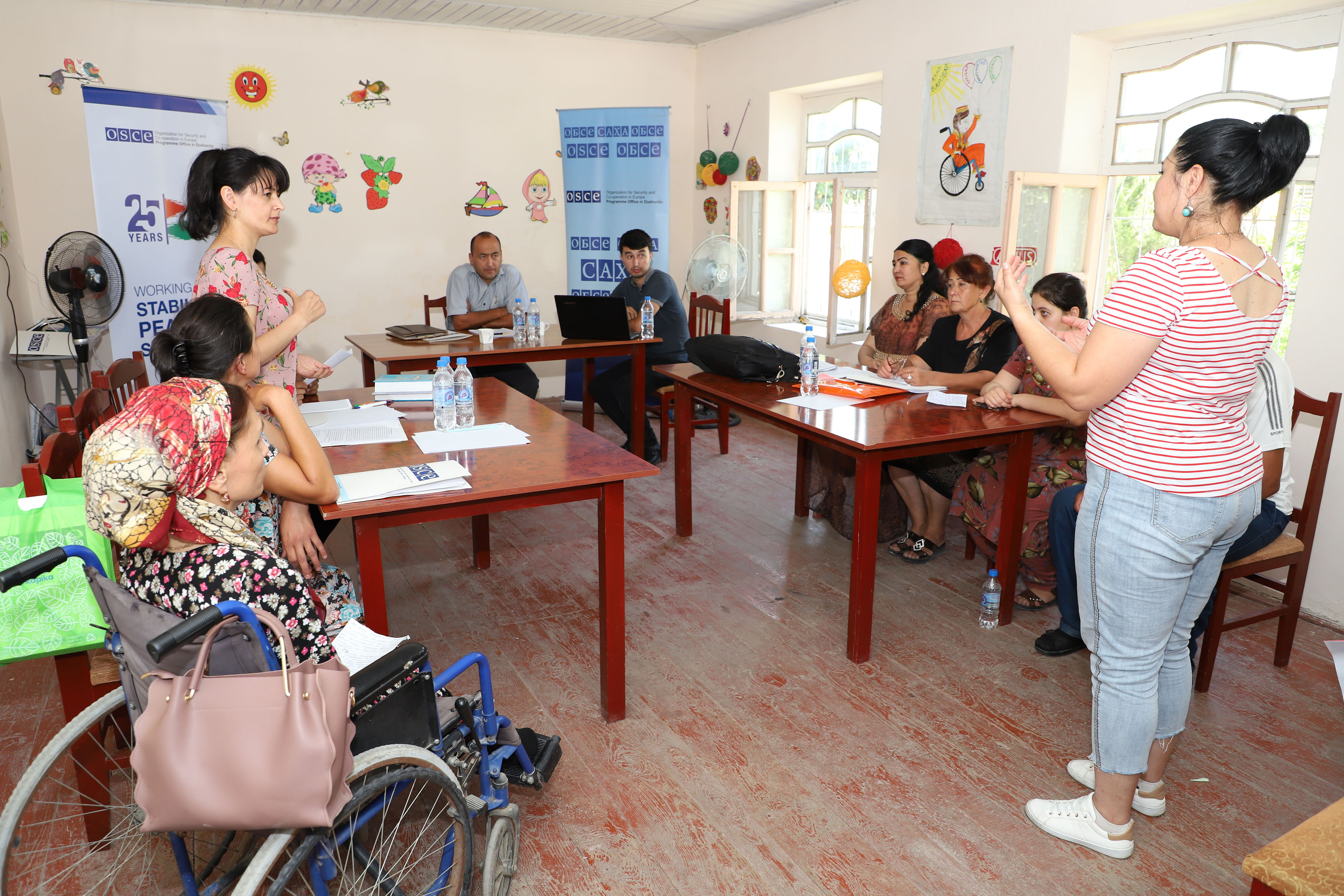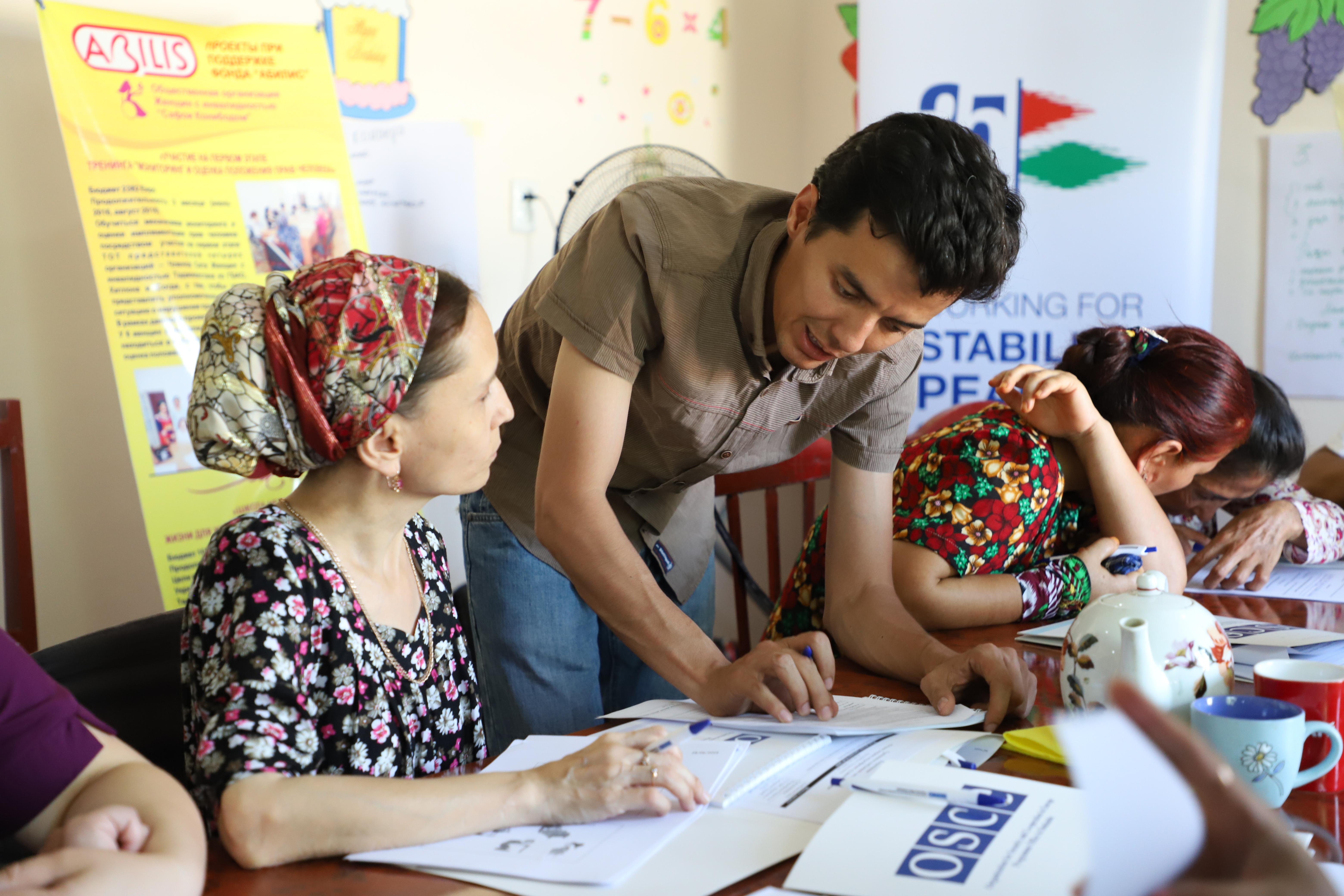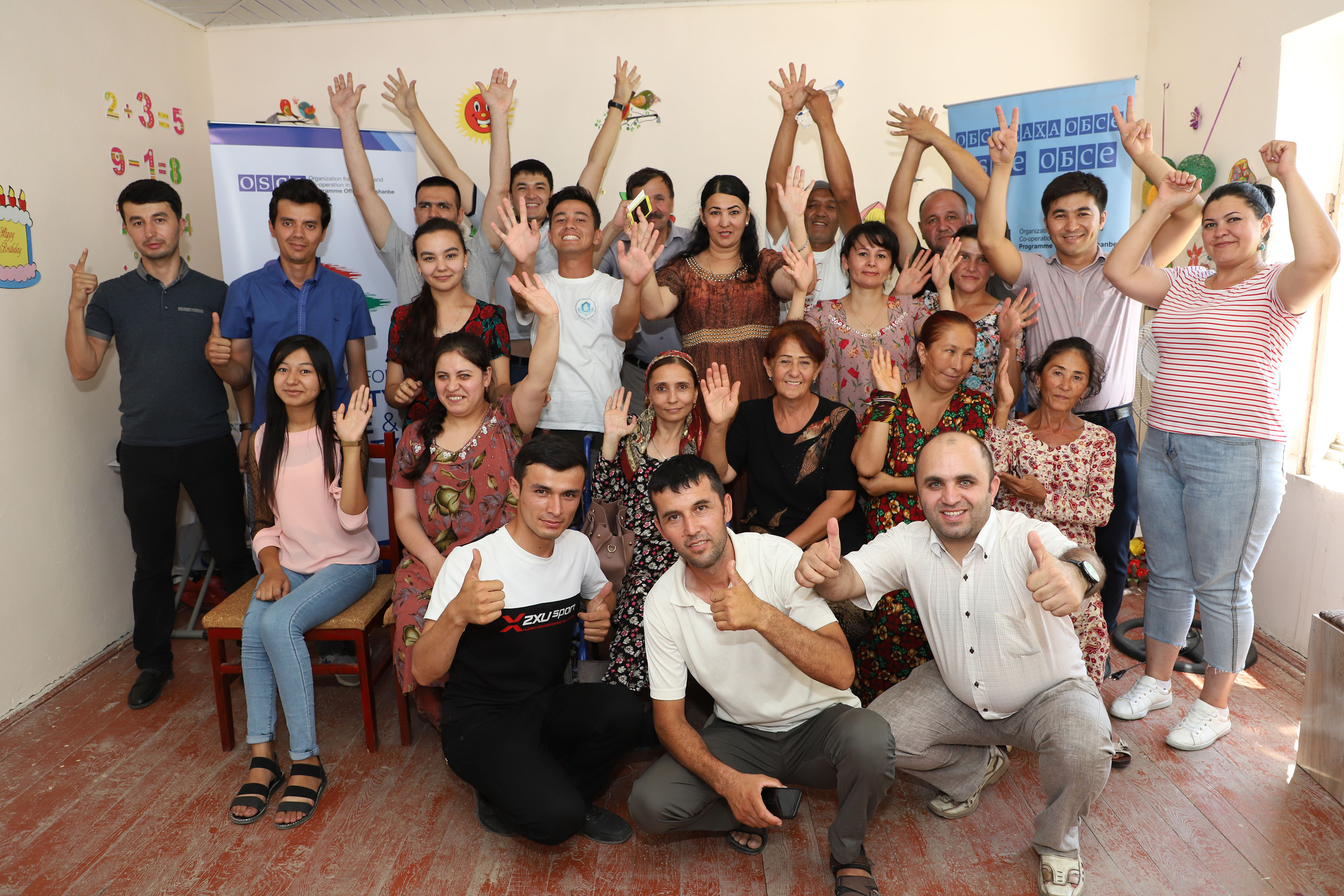
GCED Basic Search Form
Quick Search
当前位置
新闻

Twenty-seven year-old Gulrukhsor Meliboeva is a single mother from northern Tajikistan and has a hearing disability. “I did not know about social protection for people with disabilities and what support is available to them. I had no idea where and how to look for what I am entitled to,” she said.
After her divorce, life has not been easy. She is raising her daughter on her own. Gulrukhsor did not apply for alimony from her former husband as she was not aware that she had the right to do so.
Having left school after the eighth grade, she got married when she was only 17. She and her husband lived in his parent’s house and Gulrukhsor found herself subjected to domestic violence. It was not only her former husband who treated her badly, demanding obedience for his every whim. “His mother constantly criticized me,” she recalled. With her marital life becoming unbearable, she took her daughter and went back to her mother’s house. “Soon after that I divorced my husband,” said Gulrukhsor, who spoke with help from a sign language interpreter.
But now that she has attended a workshop helping disabled people to claim their rights, she feels more confident: “Now that I have learned about the law, I know what to do to apply for alimony for my daughter.”
The workshop Gulrukhsor attended was one in a series of events entitled “The Inclusive Moot Court Training” that the OSCE Programme Office in Dushanbe supported in 2019-2020. Gulrukhsor, and a friend who told her about the initiative, are part of more than 80 people who have completed the workshop.
(Photo: OSCE/Farhod Nabiyulloev)
The training workshops were specifically devised for persons with different disabilities. They aim to inform disability rights representatives and members of their organizations about their legal rights in Tajikistan. During the workshops they acquire vital skills, such as how to properly prepare submission of legal cases and appeals, how to speak in front of a real court and how to assert their rights. The ultimate goal is to empower participants by improving their confidence to claim and defend their rights.
The events were organized by the “Durnamo” and “Noil” youth organizations and held in five locations: in Khujand and Kanibadam, in the northern Sughd region; in Khorog, the provincial centre of the Gorno-Badakhshan Autonomous Region (GBAO) in the east; in Bokhtar, the centre of the southern Khatlon region, and in the capital, Dushanbe.
The workshops had an additional element of inspiration as they were conducted by trainers who themselves had a disability. One of them, Firuz Shamsiddinov, explained how being involved in delivering training courses gives him confidence in overcoming his disability. “Although I am visually impaired, I am able to help others build their abilities, and it makes me feel good and motivates me.”
(Photo: OSCE/Farhod Nabiyulloev)
The outcome of the training courses and the fact that they took place across the country contributed further to the gradual change in attitudes, as well as to awareness efforts on the issue of disabilities throughout Tajikistan.
Although Tajikistan signed the UN Convention of the Rights of Persons with Disabilities in 2018, it was only recently that the approximately 140,000 people registered with a disability were recognized as holding legitimate rights, rather than just receiving pensions and medical care. The more inclusive policy adopted by Tajikistan has paid significantly more attention on the situation of those with disabilities. This has helped improve their living conditions, as well as to broaden the understanding and respect of the public towards people with disabilities.
However, for anyone with a disability to be included in public and political life, it is essential to become informed about their human rights, and familiarized with existing tools to ensure those rights can be realized and respected. The Programme Office is actively engaged in this process by raising public awareness in each region of Tajikistan. The Office reaches out to women and girls with disabilities, who require support and face serious restrictions of their rights.
(Photo: OSCE/Farhod Nabiyulloev)
The training workshops are part of the OSCE Programme Office in Dushanbe’s work aimed at supporting people with disabilities. Other activities include awareness raising events that reach out to several hundred people across Tajikistan.
Attending the training was a short break for Gulrukhsor, who earns money by making national dresses. In her free time, she likes dancing and meeting her friends for a chat, some of whom she met through the workshop.
URL:



